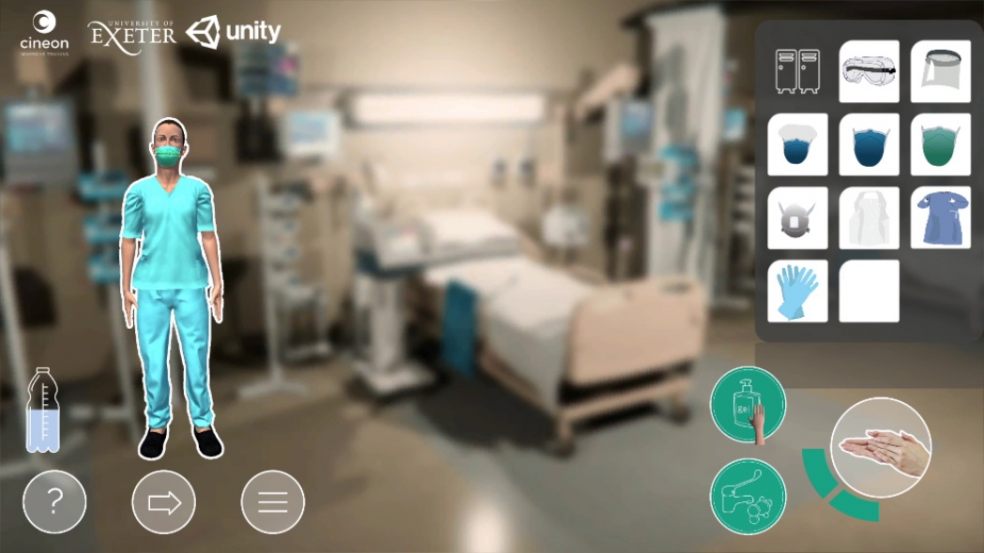
Experts create free online PPE training for NHS staff
Digital training experts have responded to the coronavirus pandemic by rapidly making new personal protective equipment (PPE) training for NHS staff.
Experts in training and human performance from Cineon Training and the University of Exeter switched focus several weeks ago to help the NHS.
The new online training is based on VR tuition which teaches nuclear workers how to use protective clothing. It has been created for online use, for easy access by NHS workers.
The training, based on current Public Health England guidelines, is ready for use and will support increasing numbers of NHS staff to use PPE.
It is free to access and NHS trusts are urged to get in touch if they are interested in using it.
“About four weeks ago we had a meeting to discuss what we could do to help during the crisis,” said Dr Sam Vine, of the University of Exeter.
“PPE is obviously vitally important for protecting NHS staff, and our new training will help people better understand the Public Health England guidelines about using PPE.
“As NHS staff move around to different parts of hospitals, the PPE requirements change. This training will teach staff which PPE items are necessary in which contexts.
“It also teaches people the correct order for putting on and taking off PPE, to minimise infection risks.”
Dr Vine added: “Our contribution comes from our expertise in the science of behavioural learning, and skills in developing digital and interactive training.
“We have a new Virtual Immersive Training and Learning research theme in our department (see here), and this idea emerged from some of the work being undertaken in this group and in our partner organisation Cineon Training to provide safety training for the nuclear industry.
“We know that if people learn in this way, they are more likely to retain the information and more likely to adopt the correct behaviours in the real world.
“The training is also autonomous and can be delivered remotely, which means it requires fewer resources such as time, space and personnel.”
The nuclear safety training uses VR headsets, but the new PPE tuition is designed for use on desktop computers and laptops.
It will provide “digital immersive training” in which NHS staff are placed in a variety of scenarios and asked to select appropriate PPE and answer questions.
Cineon’s Toby de Burgh said: “We have specialist knowledge of PPE training and wanted to use our team to help.
“We were able to grow our team rapidly thanks to funding support from the university which enabled us to produce relevant training in a very short space of time.
“Working remotely was a challenge, however everyone pulled together motivated by a strong desire to help.
“We are extremely pleased with both the outcome and positive response this project has received.”
Cineon Training funded the development of the training, and matched funding was provided by the University of Exeter’s Open Innovation Fund.
The development of the training was funded by Cineon Training and the University of Exeter’s Open Innovation Fund.
The project also received support from the Economic and Social Research Council (ESRC) Impact Acceleration Accounts scheme.
The project was further supported by Unity Technologies who kindly donated development software along with access to their team collaboration platform which enabled the development work to be undertaken remotely.
Vital support and feedback was given by Drs John McGrath and Alistair Hellewell, clinicians at the Royal Devon & Exeter NHS Foundation Trust, and by staff members from the Sport and Health Sciences department at the University of Exeter.
Other health trusts and clinicians interested in accessing the software are invited to contact the team via info@cineon.training
Further training is also being developed to help armed forces personnel who are drafted in to help in medical settings.

















